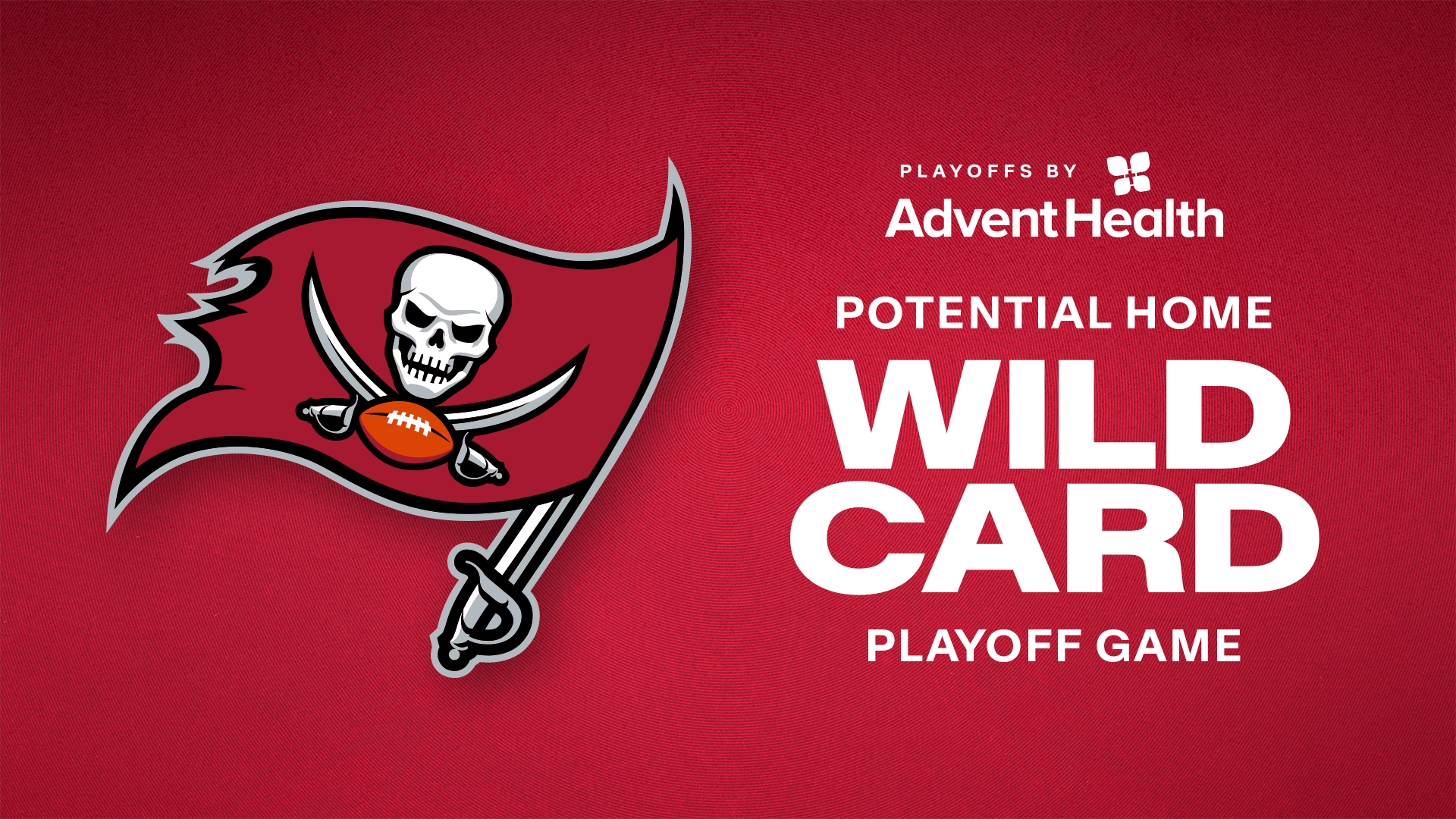The Tampa Bay Buccaneers have some big decisions to make, and one week left to make them.
The Buccaneers and the rest of the NFL are currently midway through the two-week window in which they can apply franchise or transition tags (or both, possibly) to their potential free agents. That window opened on Thursday, February 27 and will close on Thursday, March 12, six days before the start of free agency. Will the Bucs make a move with either or both of their potential tags before that window is shut? Or will they even need to by then?
The franchise tag, which came into existence with the first collective bargaining agreement in 1993, allows a team to retain exclusive negotiating rights with one pending unrestricted free agent, or set itself up for a significant amount of compensation if that player signs elsewhere. It carries with it a hefty one-year price tag that varies by position. The transition tag is similar but does not carry with it compensation for departing players and carries a somewhat smaller price tag.
Because this is the final year of the Collective Bargaining Agreement (CBA) that was ratified in 2011, teams can actually use one franchise tag and one transition tag this offseason. Of course, with the potential of a new CBA being agreed upon any day, that option could evaporate at any point, leaving teams with just one available tag, like usual.
A player who receives an "exclusive" franchise tag may not negotiate with other teams; the "non-exclusive" tag allows the player to sign with another team but gives the original team the right to match the offer or receive two first-round draft picks from the other club. Teams also have the lesser-used option of designating a player with a transition tag, which gives the original team right-of-first-refusal on any offer the player receives from another team but does not include compensation if the contract is not matched. A team can use either a franchise tag or a transition tag in any given season, not both.
The Buccaneers have not chosen to utilize a franchise or transition tag since 2012, when they applied it to kicker Connor Barth and then later came to agreement with Barth on a multi-year contract. The opportunity to extend the exclusive negotiating window with a player in this way is one of the main benefits of the franchise tag to teams.
For instance, both the Buccaneers and outside linebacker Shaquil Barrett, the 2019 NFL sack leader, have made it clear that they wish to stay together long term. However, that doesn't mean that negotiating a new long-term deal will be easy. With the option of the franchise tag, the Buccaneers would have to get Barrett re-signed by March 18 or risk him being exposed to the open market. Barth, for example, received his franchise tag in February and then signed a four-year contract on May 17.
View pictures from the DB group at the 2020 NFL Combine.

Ohio St. cornerback Damon Arnette runs the 40-yard dash during the 2020 NFL Scouting Combine, Sunday, Mar. 1, 2020 in Indianapolis. (Aaron Doster/NFL)

Ohio St. cornerback Damon Arnette runs the 40-yard dash during the 2020 NFL Scouting Combine, Sunday, Mar. 1, 2020 in Indianapolis. (Aaron Doster/NFL)

TCU cornerback Jeff Gladney runs the 40-yard dash during the 2020 NFL Scouting Combine, Sunday, Mar. 1, 2020 in Indianapolis. (Aaron Doster/NFL)

TCU cornerback Jeff Gladney runs the 40-yard dash during the 2020 NFL Scouting Combine, Sunday, Mar. 1, 2020 in Indianapolis. (Aaron Doster/NFL)

Oklahoma St. cornerback A.J. Green runs the 40-yard dash during the 2020 NFL Scouting Combine, Sunday, Mar. 1, 2020 in Indianapolis. (Aaron Doster/NFL)

Oklahoma St. cornerback A.J. Green runs the 40-yard dash during the 2020 NFL Scouting Combine, Sunday, Mar. 1, 2020 in Indianapolis. (Aaron Doster/NFL)

Utah cornerback Javelin K. Guidry runs the 40-yard dash during the 2020 NFL Scouting Combine, Sunday, Mar. 1, 2020 in Indianapolis. (Aaron Doster/NFL)

Temple cornerback Harrison Hand runs the 40-yard dash during the 2020 NFL Scouting Combine, Sunday, Mar. 1, 2020 in Indianapolis. (Aaron Doster/NFL)

Florida cornerback CJ Henderson runs the 40-yard dash during the 2020 NFL Scouting Combine, Sunday, Mar. 1, 2020 in Indianapolis. (Logan Bowles/NFL)

Florida cornerback CJ Henderson runs the 40-yard dash during the 2020 NFL Scouting Combine, Sunday, Mar. 1, 2020 in Indianapolis. (Logan Bowles/NFL)

UCLA cornerback Darnay Holmes runs the 40-yard dash during the 2020 NFL Scouting Combine, Sunday, Mar. 1, 2020 in Indianapolis. (Logan Bowles/NFL)

Auburn cornerback Noah Igbinoghene runs the 40-yard dash during the 2020 NFL Scouting Combine, Sunday, Mar. 1, 2020 in Indianapolis. (Logan Bowles/NFL)

Pittsburgh cornerback Dane Jackson runs the 40-yard dash during the 2020 NFL Scouting Combine, Sunday, Mar. 1, 2020 in Indianapolis. (Logan Bowles/NFL)

Nebraska cornerback Lamar Jackson runs the 40-yard dash during the 2020 NFL Scouting Combine, Sunday, Mar. 1, 2020 in Indianapolis. (Logan Bowles/NFL)

Nebraska cornerback Lamar Jackson runs the 40-yard dash during the 2020 NFL Scouting Combine, Sunday, Mar. 1, 2020 in Indianapolis. (Logan Bowles/NFL)

Utah cornerback Jaylon Johnson runs the 40-yard dash during the 2020 NFL Scouting Combine, Sunday, Mar. 1, 2020 in Indianapolis. (Logan Bowles/NFL)

Iowa cornerback Michael Ojemudia runs the 40-yard dash during the 2020 NFL Scouting Combine, Sunday, Mar. 1, 2020 in Indianapolis. (Logan Bowles/NFL)

Iowa cornerback Michael Ojemudia runs a drill during the 2020 NFL Scouting Combine, Sunday, Mar. 1, 2020 in Indianapolis. (Logan Bowles/NFL)

Ohio St. cornerback Jeff Okudah runs the 40-yard dash during the 2020 NFL Scouting Combine, Sunday, Mar. 1, 2020 in Indianapolis. (Aaron Doster/NFL)

Ohio St. cornerback Jeff Okudah runs the 40-yard dash during the 2020 NFL Scouting Combine, Sunday, Mar. 1, 2020 in Indianapolis. (Logan Bowles/NFL)

Florida Atlantic cornerback James Pierre runs the 40-yard dash during the 2020 NFL Scouting Combine, Sunday, Mar. 1, 2020 in Indianapolis. (Aaron Doster/NFL)

Florida Atlantic cornerback James Pierre runs a drill during the 2020 NFL Scouting Combine, Sunday, Mar. 1, 2020 in Indianapolis. (Logan Bowles/NFL)

Notre Dame cornerback Troy Pride Jr. runs the 40-yard dash during the 2020 NFL Scouting Combine, Sunday, Mar. 1, 2020 in Indianapolis. (Aaron Doster/NFL)

Notre Dame cornerback Troy Pride Jr. runs a drill during the 2020 NFL Scouting Combine, Sunday, Mar. 1, 2020 in Indianapolis. (Logan Bowles/NFL)

Penn St. cornerback John Reid runs the 40-yard dash during the 2020 NFL Scouting Combine, Sunday, Mar. 1, 2020 in Indianapolis. (Aaron Doster/NFL)

Penn St. cornerback John Reid runs a drill during the 2020 NFL Scouting Combine, Sunday, Mar. 1, 2020 in Indianapolis. (Logan Bowles/NFL)

Penn St. cornerback John Reid runs a drill during the 2020 NFL Scouting Combine, Sunday, Mar. 1, 2020 in Indianapolis. (Logan Bowles/NFL)

Tulsa cornerback Reggie Robinson II runs the 40-yard dash during the 2020 NFL Scouting Combine, Sunday, Mar. 1, 2020 in Indianapolis. (Aaron Doster/NFL)

Tulsa cornerback Reggie Robinson II runs the 40-yard dash during the 2020 NFL Scouting Combine, Sunday, Mar. 1, 2020 in Indianapolis. (Aaron Doster/NFL)

Tulsa cornerback Reggie Robinson II runs a drill during the 2020 NFL Scouting Combine, Sunday, Mar. 1, 2020 in Indianapolis. (Logan Bowles/NFL)

Florida St. cornerback Stanford Samuels III runs the 40-yard dash during the 2020 NFL Scouting Combine, Sunday, Mar. 1, 2020 in Indianapolis. (Aaron Doster/NFL)

Florida St. cornerback Stanford Samuels III runs a drill during the 2020 NFL Scouting Combine, Sunday, Mar. 1, 2020 in Indianapolis. (Logan Bowles/NFL)

Michigan St. cornerback Josiah Scott runs the 40-yard dash during the 2020 NFL Scouting Combine, Sunday, Mar. 1, 2020 in Indianapolis. (Aaron Doster/NFL)

Michigan St. cornerback Josiah Scott runs a drill during the 2020 NFL Scouting Combine, Sunday, Mar. 1, 2020 in Indianapolis. (Logan Bowles/NFL)

Clemson cornerback A.J. Terrell runs the 40-yard dash during the 2020 NFL Scouting Combine, Sunday, Mar. 1, 2020 in Indianapolis. (Aaron Doster/NFL)

Clemson cornerback A.J. Terrell runs the 40-yard dash during the 2020 NFL Scouting Combine, Sunday, Mar. 1, 2020 in Indianapolis. (Logan Bowles/NFL)

Clemson cornerback A.J. Terrell runs the 40-yard dash during the 2020 NFL Scouting Combine, Sunday, Mar. 1, 2020 in Indianapolis. (Logan Bowles/NFL)

Clemson cornerback A.J. Terrell runs a drill during the 2020 NFL Scouting Combine, Sunday, Mar. 1, 2020 in Indianapolis. (Logan Bowles/NFL)

FIU cornerback Stantley Thomas-Oliver III participates in the broad jump during the 2020 NFL Scouting Combine, Sunday, Mar. 1, 2020 in Indianapolis. (Aaron Doster/NFL)

FIU cornerback Stantley Thomas-Oliver III runs the 40-yard dash during the 2020 NFL Scouting Combine, Sunday, Mar. 1, 2020 in Indianapolis. (Aaron Doster/NFL)

FIU cornerback Stantley Thomas-Oliver III runs a drill during the 2020 NFL Scouting Combine, Sunday, Mar. 1, 2020 in Indianapolis. (Logan Bowles/NFL)

FIU cornerback Stantley Thomas-Oliver III runs a drill during the 2020 NFL Scouting Combine, Sunday, Mar. 1, 2020 in Indianapolis. (Logan Bowles/NFL)

FIU cornerback Stantley Thomas-Oliver III runs a drill during the 2020 NFL Scouting Combine, Sunday, Mar. 1, 2020 in Indianapolis. (Logan Bowles/NFL)

FIU cornerback Stantley Thomas-Oliver III runs a drill during the 2020 NFL Scouting Combine, Sunday, Mar. 1, 2020 in Indianapolis. (Logan Bowles/NFL)

Georgia Southern cornerback Kindle Vildor participates in the broad jump during the 2020 NFL Scouting Combine, Sunday, Mar. 1, 2020 in Indianapolis. (Aaron Doster/NFL)

Georgia Southern cornerback Kindle Vildor runs the 40-yard dash during the 2020 NFL Scouting Combine, Sunday, Mar. 1, 2020 in Indianapolis. (Aaron Doster/NFL)

Georgia Southern cornerback Kindle Vildor runs a drill during the 2020 NFL Scouting Combine, Sunday, Mar. 1, 2020 in Indianapolis. (Logan Bowles/NFL)

Lenoir-Rhyne safety Kyle Dugger runs a drill during the 2020 NFL Scouting Combine, Sunday, Mar. 1, 2020 in Indianapolis. (Logan Bowles/NFL)

Notre Dame safety Jalen Elliott runs a drill during the 2020 NFL Scouting Combine, Sunday, Mar. 1, 2020 in Indianapolis. (Aaron Doster/NFL)

Ohio St. safety Jordan Fuller runs a drill during the 2020 NFL Scouting Combine, Sunday, Mar. 1, 2020 in Indianapolis. (Aaron Doster/NFL)

Clemson safety Tanner Muse runs a drill during the 2020 NFL Scouting Combine, Sunday, Mar. 1, 2020 in Indianapolis. (Aaron Doster/NFL)

Louisiana Tech safety L'Jarius Sneed runs a drill during the 2020 NFL Scouting Combine, Sunday, Mar. 1, 2020 in Indianapolis. (Aaron Doster/NFL)

Auburn safety Daniel Thomas runs a drill during the 2020 NFL Scouting Combine, Sunday, Mar. 1, 2020 in Indianapolis. (Aaron Doster/NFL)
The end of the window to place franchise tags on players can serve as one sort of artificial deadline, too. If a club would prefer not to use the franchise tag on a certain player, or to save the tag for another one of their free agents, they know they have to have a deal in place with the first player by that date. Just last year, the Bucs may have considered using a franchise tag on left tackle Donovan Smith, but instead the two sides agreed on a new three-year contract on March 6, just hours before the tag window was set to close.
Barrett is one of 19 players from the Bucs' 2019 roster who are due to become free agents on March 18. That list also includes starting quarterback Jameis Winston plus the team's second-leading sack artist Jason Pierre-Paul, third-leading receiver Breshad Perriman and interior defensive force Ndamukong Suh. That said, only Barrett and Winston are widely considered potential targets for those tags.
The Bucs have only utilized the franchise or transition tag four times in the 27 years it has been available prior to 2020. They did so in the very first year of its existence, using the franchise tag on left tackle Paul Gruber in 1993. That led to a five-game holdout by Gruber, who had previously not missed a single offensive snap in his first five NFL seasons, but he and the Buccaneers eventually settled on a long-term deal. Gruber was inducted into the Bucs' Ring of Honor at Raymond James Stadium in 2012.
Other than Gruber and Barth, the only other Bucs to get the franchise tag were defensive end Chidi Ahanotu in 1999 and wide receiver Antonio Bryant in 2009.




































